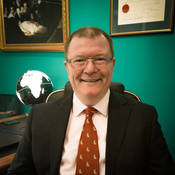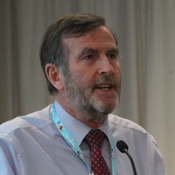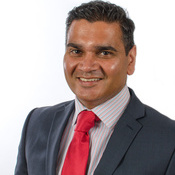Law for Orthopaedic Surgeons - Avoiding Jeopardy
This is a course structured by pre-recorded lectures available 6 weeks before the delivery day of case-based discussions and Q&A, which provides broad coverage of the interface between law and the practice of orthopaedic surgery. It is specifically designed to highlight potential pitfalls in practice from the medico-legal perspective and to help steer surgeons away from potential jeopardy.
The course is aimed at consultants, SAS doctors and orthopaedic trainees who wish to gain knowledge of the elements of law which underpin various aspects of contemporary surgical practice. It includes:
- practical advice on how to approach giving evidence in legal proceedings such as coroner's court
- advice on practical measures to avoid jeopardy with employers, the courts and the regulator
- a full delivery day of case-based discussion talks with Q&A including a mock coroner's inquest
- pre-recorded material to be watched in advance, which will be available 6 weeks prior to the course delivery day
Faculty is comprised of experienced consultants in surgical specialties, all with extensive knowledge of law relating to surgery, practising barristers, coroners / assistant coroners and a representative from the Medical Protection Society. Please see below for further details of faculty members.

Course Structure
The following are the topics covered on the course. Pre-recorded material on each topic will be available to participants 6 weeks in advance of the delivery day of live virtual talks.
The course covers topics of surgical relevance including consent, clinical negligence, MPTS hearings and the GMC, court etiquette, coroner’s court, confidentiality, data protection and messaging apps, gross negligence manslaughter, and the pitfalls of social media. Faculty is comprised of experienced consultants in surgical specialties, all with extensive knowledge of law relating to surgery, practising barristers, coroners / assistant coroners and a representative from the Medical Protection Society.
Course Date and Location
Future course dates to be confirmed.
Course Fees
The course fee is £200 for BOA members (£300 for non-members).
Fees are payable at the time of registration. Your place is only treated as confirmed once payment is received.
Booking terms
By booking onto this course you consent to:
- The BOA Privacy Policy found here
- The use of your work/personal email and Zoom for all communication and learning material needs.
Please note, sharing any of your own, or others, personal details in any of the above software/programmes is not permitted
Terms and Conditions: By booking onto this course you are confirming that you have read and agreed to the terms and conditions of the BOA Law for Orthopaedic Surgeons - Avoiding Jeopardy course.
Our policy team are happy to help you with any queries you may have regarding the course. You can contact us by email at [email protected] or by telephone on 0207 405 6507.







